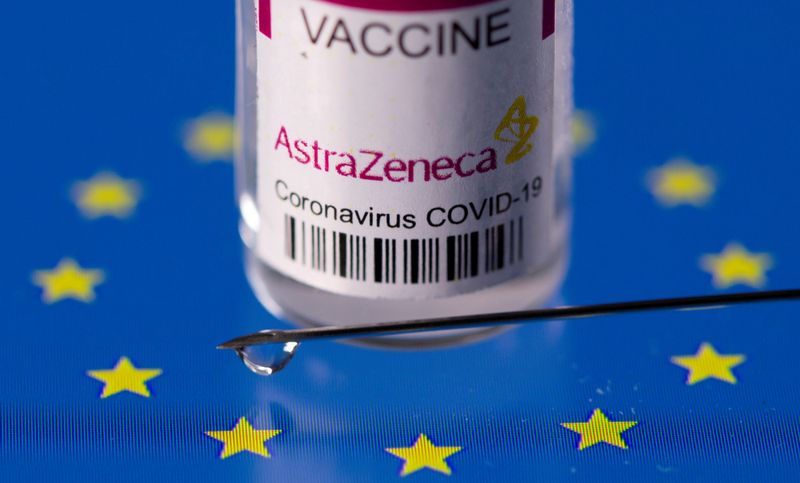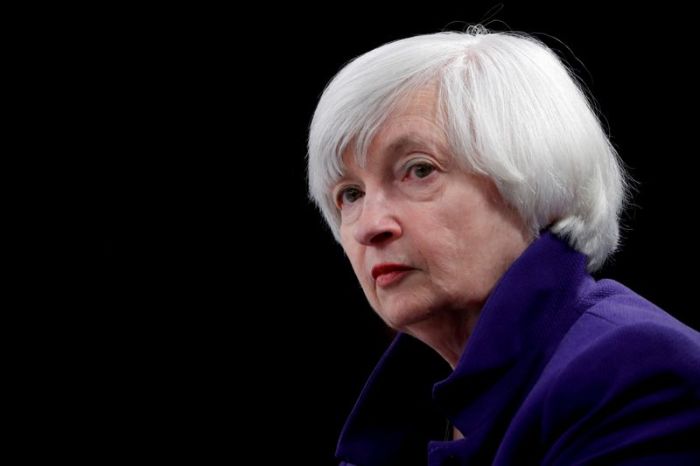ROME (Reuters) – A senior official at Europe’s medicines regulator has said there is a clear “association” between AstraZeneca’s COVID-19 vaccine and very rare blood clots in the brain, though the direct cause of the clots is still unknown.
The European Medical Agency (EMA) said in a statement after the comments by Marco Cavaleri, chair of its vaccine evaluation team, that it was still conducting a review of the vaccine and expected to announce its findings on Wednesday or Thursday.
An AstraZeneca spokesman declined to comment on Cavaleri’s remarks, which he made in an interview with Italian newspaper Il Messagero that was published on Tuesday.
“In my opinion, we can now say it, it is clear that there is an association (of the brain blood clots) with the vaccine. However, we still do not know what causes this reaction,” Cavaleri said, without giving evidence to support his comments.
The EMA has said the benefits of the AstraZeneca shot outweigh any risks, and the World Health Organization has backed the vaccine. AstraZeneca has said previously that its studies have found no higher risk of clots because of its vaccine.
The EMA is investigating 44 reports of an extremely rare brain clot known as cerebral venous sinus thrombosis (CVST) out of 9.2 million people who have received the vaccine in the European Economic Area, which comprises European Union member states and Iceland, Liechtenstein and Norway.
Cavaleri said the EMA would say in its review that there is a link, but was not likely to give an indication this week on which age groups should or should not get the AstraZeneca shot.
Some countries, including France, Germany and the Netherlands, have suspended the use of the vaccine in younger people while the investigations continue.
REVIEW ONGOING
In response to Cavaleri’s comments, the Amsterdam-based EMA said in a statement on Tuesday: “EMA’s Pharmacovigilance Risk Assessment Committee (PRAC) has not yet reached a conclusion and the review (of any possible link) is currently ongoing.”
The EMA said last week that its review had not identified any specific risk factors, such as age, gender or medical history, for these very rare events.
In a separate interview, Armando Genazzani, a member of the EMA’s Committee for Medicinal Products for Human Use (CHMP), told La Stampa daily that it was “plausible” that the blood clots were correlated with the AstraZeneca vaccine.
A high proportion of the reported cases are in young or middle-aged women, but that has not led the EMA to conclude this group is at particular risk.
Scientists are exploring several possibilities that might explain the rare brain blood clots.
One theory suggests the vaccine triggers an unusual antibody in some rare cases; other investigators are looking into a possible link with birth control pills.
But many experts say there is no definitive evidence and it is not clear whether or why AstraZeneca’s vaccine would cause a problem not shared by other vaccines that target a similar part of the coronavirus.
“We need to know more about the people affected and we need to understand exactly how the illnesses came about, while many other questions remain unanswered at this time,” said Adam Finn, a professor of paediatrics at Britain’s Bristol University who has been involved with UK studies of several COVID-19 vaccines, including the AstraZeneca shot and another developed by Pfizer.
He said it was very clear that clotting cases were “very rare indeed” and that the vaccines that are available and in use in Britain “prevent COVID very effectively”.
(Reporting by Giulia Segreti; Additonal reporting by Kate Kelland in London, and Toby Sterling and Anthony Deutsch in Amsterdam; Editing by Giles Elgood, Gareth Jones and Timothy Heritage)
























